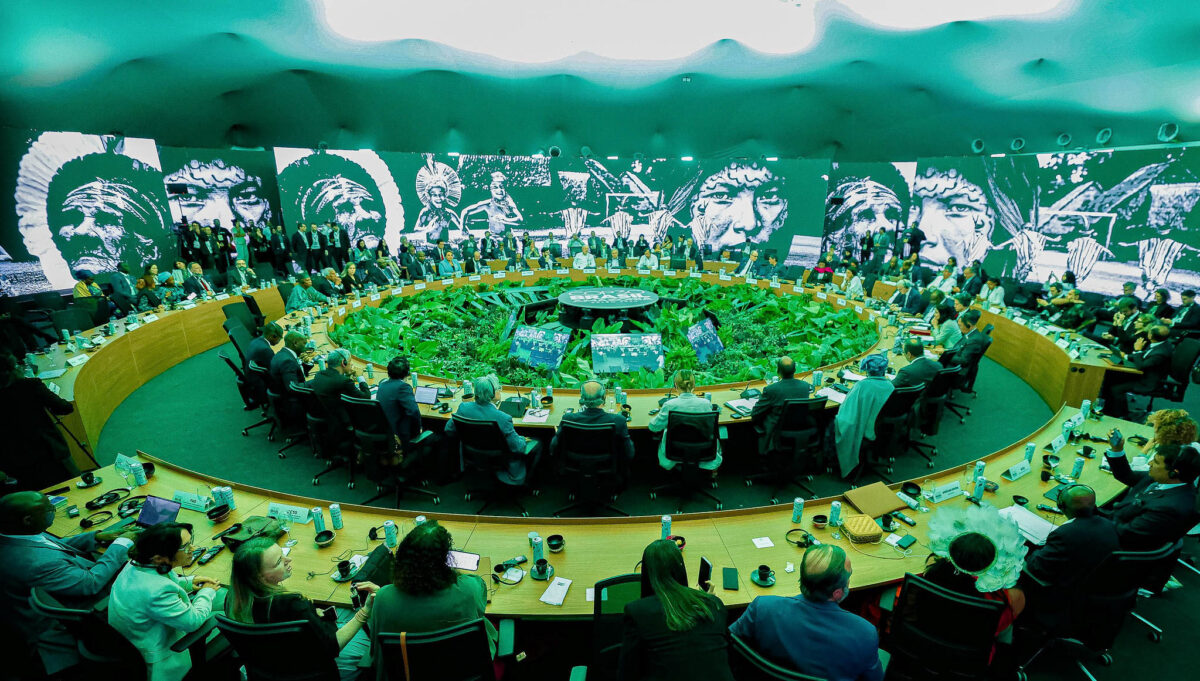
When the waiter arrives with the pain, it’s the biggest cockroach. Distracted people get up to answer their cell phones, some forget to go to the bathroom, and some sneak out saying they’ll do it properly next time. The Anthropocene resembles one of these binges. And COP30 is a good place to consolidate the fragmentation of environmental legislation.
It turns out that in the process of building a global GDP of more than US$110 trillion per year (source: World Bank), the public and private sectors forgot to record the resulting environmental costs in their financial statements. This cycle is one that has so far put off repairing the degradation of natural assets on which the prospects for life on Earth depend, especially for future generations (read: our children and grandchildren…).
It is true that the boom in industrialization over the past 250 years has increased the average happiness of our people on a scale previously unimaginable. Advances in areas such as longevity, education, technology, infrastructure, communications, transportation, comfort, science, food, business, and defense, among others, are undeniable. Most people’s lives have improved. It is understandable, then, that until half a century ago, the fascination with this brave new world distracted us from the overuse of natural resources and the associated risks of pollution. It all seemed worthwhile to businessmen and governments, and to us as consumers. Environmentalism was seen as like cricket.
But this is no longer just a Globo reporter’s story about the disappearance of glaciers and pandas on the other side of the world. It is now becoming impossible to control the Earth’s climate, and it is knocking (literally) on the door of ordinary citizens. Then along with droughts, floods and hurricanes came a US$1.3 trillion annual climate change bill. This is the amount estimated at the COP30 microphone, if you don’t want to prematurely revert to the clay of the Bible in anticipation of the prophecies of Ecclesiastes. However, spending this amount means changing humanity’s fiscal balance.
That means moving more than 10% of global GDP from the profit column to the expense and investment column. In the short term, for the market, this wave of reality could dampen dividends and top-tier bonuses. For governments and parliamentarians, it could lead to confusion at the ballot box. And for the average Homo sapiens, dreams of consumption may become impossible.
The division of the climate change bill is reminiscent of a bar table. If everyone has beer and fries, they can share it equally. But sometimes people order lobster at Dom Pérignon and want to pay for the farofa in pitou. This is what happened in the age of coal and oil. Those who disposed of their environment more freely were the first to reach the “top 10” of GDP. Nowadays it is fair to pay according to the amount consumed during the period. It’s worth remembering that the richest 1% on earth own almost half of the wealth created by humanity (source: Oxfam). It is this bill that will be discussed at the COP30 table.
When it comes to allocation, it’s no surprise that some people with a sweet tooth are absent or disagree. Still, some important steps have been taken in recent years, including building scientific evidence, opening up spaces for dialogue, envisioning transition maps, and creating funds for climate adaptation. But progress cannot be delayed.
Felipe Sampaio: Advisor to the President of IBRAM – Institute of Mines in Brazil. Co-founder of the Center for Sovereignty and Climate. I worked in large companies, the third sector, and international organizations. He was a mining entrepreneur. Former Deputy Secretary-General of the Ministry of Entrepreneurship. He directed the Ministry of Justice’s statistical information system. Former director of the research institute. Doctor of Defense Studies, Ministry of Defense.



